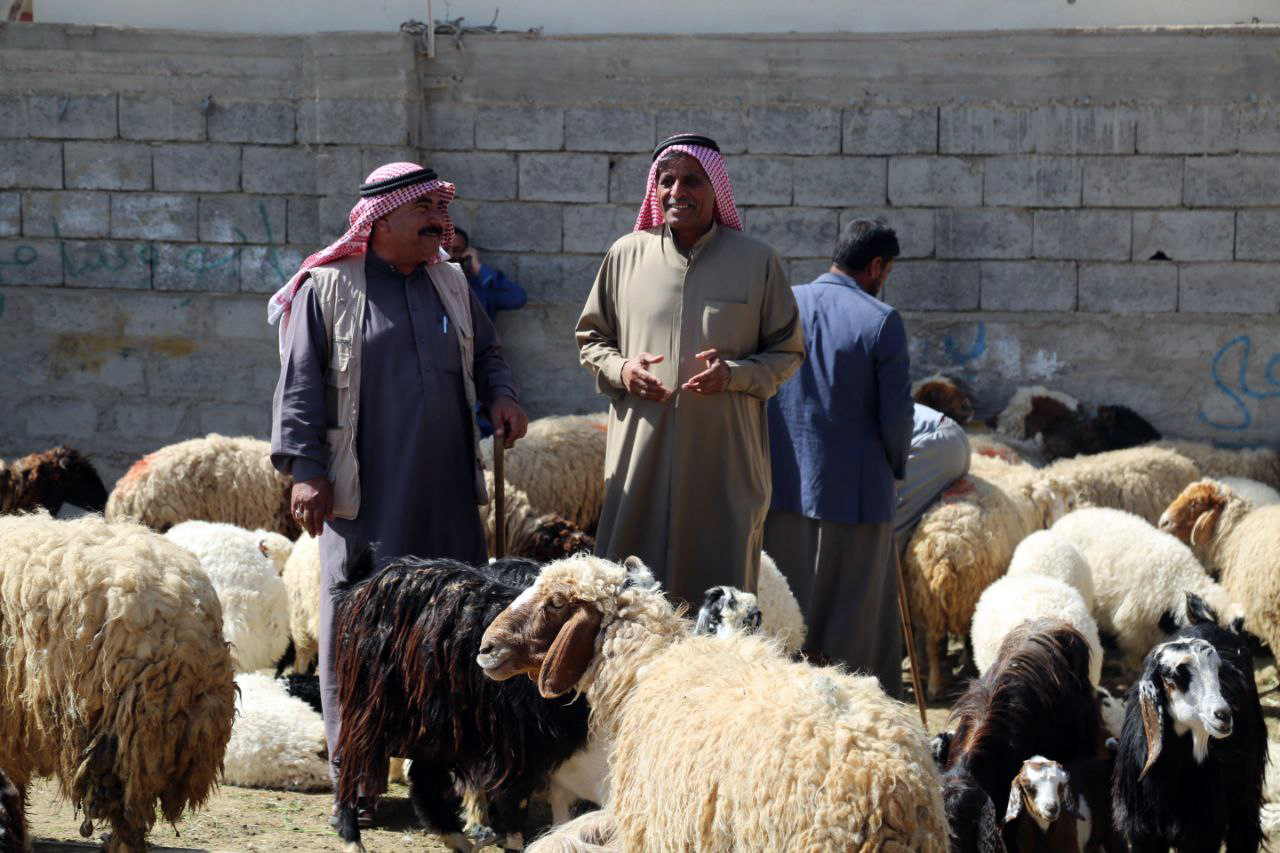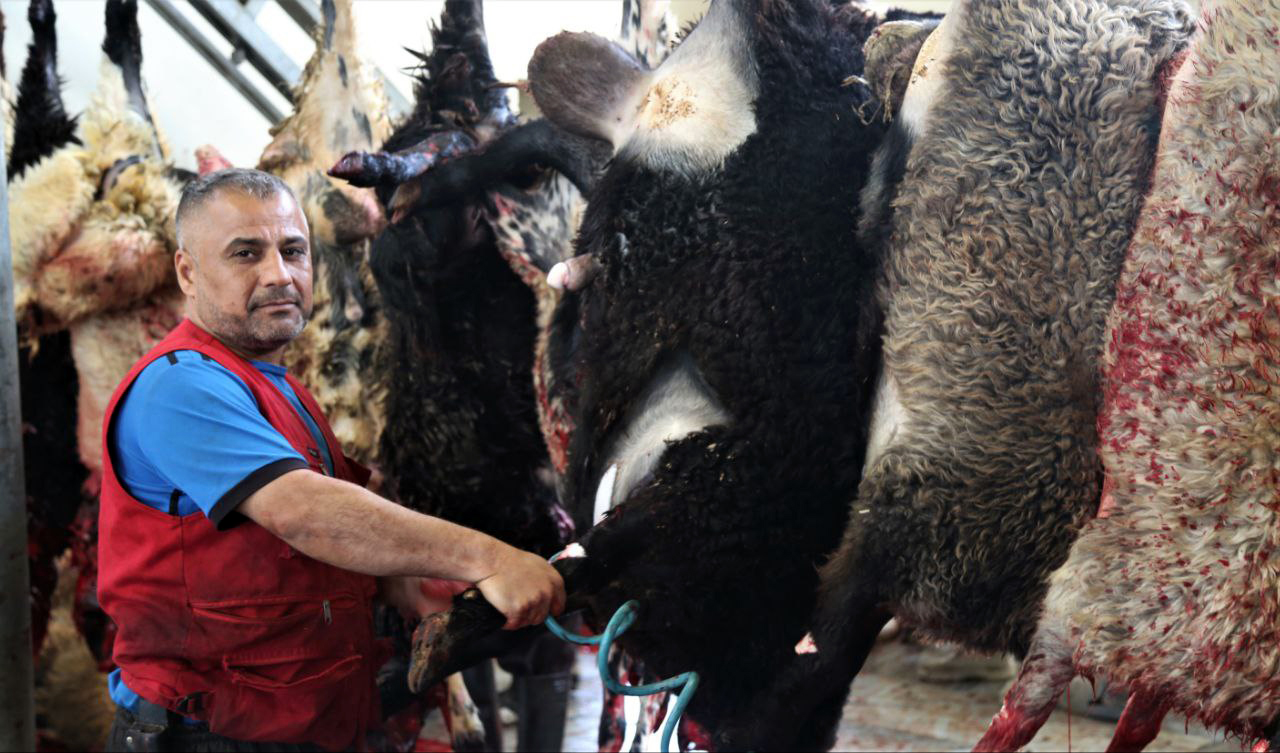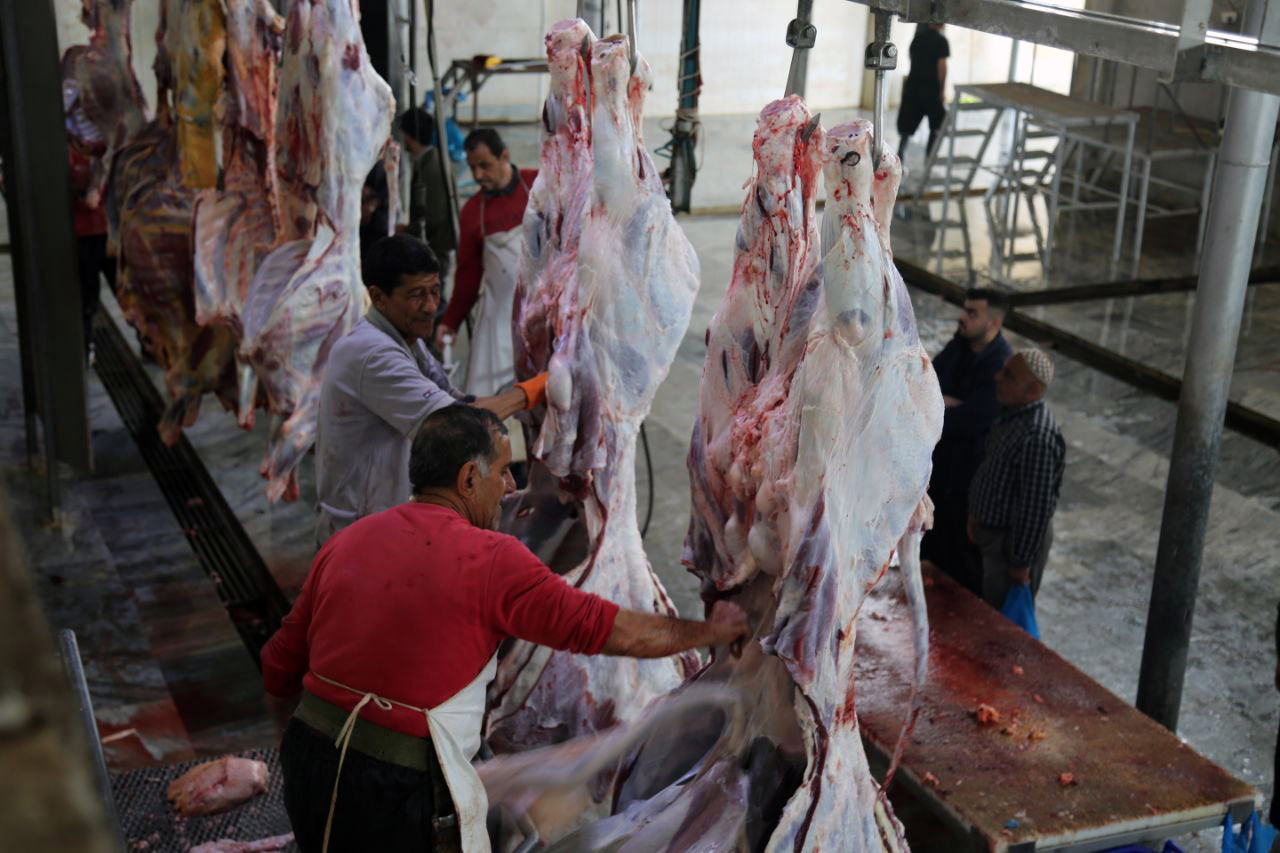The slaughterhouses pump 18 tons of beef and sheep meat daily to the markets of Kirkuk, but their prices are rising day after day, so that the price of one kilogram has soared from 14,000 (USD10) to 18,000 Iraqi dinars IQD.
Several factors contributed to this rise, including the drought due to the poor rainfall, the ban on importing meat and the increased demand for it during the month of Ramadan.
According to the follow-ups of KirkukNow, ong kilogram KG of beef is sold for 18,000 IQD, while a KG of lamb has increased by 2,000 IQD than before and is now sold for 15,000.
“The increase in the price of meat reduced the citizens’ demand to buy it. Decrease in price is in our interest because the demand will go up,” says Ali Al-Qassab, owner of a butcher shop in Kirkuk.
Prices are not fixed and unstable and vary by a thousand or two thousand dinars, according to are and the owner.
Amina Nouri was purchasing meat in a butcher’s shop in the middle of Qoriya popular bazaar. She was frustrated by the rise of meat price. “You sleep and wake up the next day to find that the price of one of the foodstuffs has risen, they raised the prices of cooking oil and rice before, and now it is the turn for meat.
Everyone is careless about the people and the people are silent...I am sure that the citizens will buy it even if the price of meat reaches 25,000.”
According to KirkukNow follow-up, the prices of most food commodities, vegetables and fruits have increased at varying rates since the beginning of the month of Ramadan, early April.
The price of a 20-pack of cooking oil carton during Ramadan reached 95 thousand Iraqi dinars IQD ($63), then dropped to 65 IQD, while it was previously sold for 48 thousand dinars.
A bag of Turkish flour weighing 50 kilograms was sold for 39,000 IQD, but its price in Ramadan reached 49,000 dinars, and a bag of sugar weighing 25 kilograms increased by 10,000 dinars.
The oil rich-city of Kirkuk, is an ethnically mixed province Kurds, Sunni and Shiite Arabs, and Turkmens. It has long been at the center of disputed territories between Baghdad and Erbil.
Kirkuk, located 238 kilometers north of Baghdad, has vast agricultural lands and consists of four districts.

The prices of some foodstuffs have increased before Ramadan, especially cooking oil and flour, an aftermath of Russia invasion of Ukraine, according to the Iraqi government.
Kazem Ahmed, who works in the field of selling livestock in Kirkuk, believes that one of the reasons for the high prices of meat is, ban of buying livestock from the Iraqi Kurdistan Region IKR to Kirkuk at the security checkpoints.
“There is a ban on import, for example, they allow the entry of only three livestock … so some people bring livestock to the field of selling livestock through smuggling, which increases the cost of transporting them, as an amount of eight million dinars is taken for each shipment of livestock, this amount will be added to the price of meat, so it is sold at a higher price."
A number of livestock sellers confirmed to (KirkukNow) the existence of "smuggling routes" to bring livestock into Kirkuk, without disclosing more details.
Hikmat Nemat Suleiman, director of the Kirkuk modern slaughterhouse, explained that the lack of rain contributed to the increase in the prices of livestock, as the lack of pastures led to a rise in the prices of livestock feed, so the price of a ton of fodder reached from 150,000 to 750,000.
The director of the slaughterhouse explained that about 250 sheep and 120 cows are daily sulaghtered, and after the completion of tests and other procedures, approximately 18 tons of meat are pumped to the markets of Kirkuk city.

The prices of meat for livestock slaughtered outside government slaughterhouses without undergoing sanitary procedures, are a few thousand dinars cheaper than others.
Hawry Zangana, head of the committees of Kirkuk mayoralty - a body that monitors the markets - told (KirkukNow), "It is true that meat prices are high, but your health is more important, and citizens should not put themselves at risk and buy meat that is sold in the streets because it is two thousand dinars cheaper."
In addition to crude oil, livestock farming and agriculture are other sources of income for Kirkuk province, home to over 1.7 million people, according to the estimates of the Iraqi Ministry of Planning for the year 2021.





